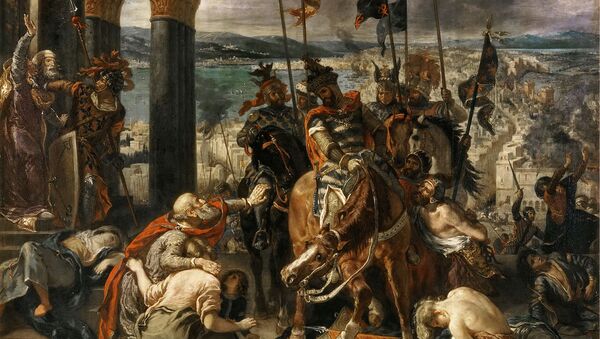The Crusades’ armies were remarkably genetically diverse, a recent study, cited by The Guardian implies. Despite the commonly accepted image of the fight between the East and the West, experts suggest that the people in the armies, heading into battle for Jerusalem and the Christian legacy, had strikingly varied backgrounds as knights and soldiers apparently built alliances and relationships on their way to the Holy Land.
According to a publication in the American Journal of Human Genetics, an international team of researchers from the UK, Lebanon and Belgium extracted DNA from remains, believed to belong to crusaders, dating back to the 13th century and found in a mass grave at a former crusader castle in Lebanon.
READ MORE: Tour to Unique Medieval-Era Crusader Castle in Syria
They compared them to a variety of samples from modern-day individuals as well as ancient people and Roman remains. It turned out that only three out of 9 men, buried in that pit, originated in Western Europe. Four more were closer to modern-day Lebanese, while the remaining two had both European and other origins. Notably, while one of them had ancestry in Lebanon and in Europe, the other seemed to have Bedouin or Saudi heritage, on one side, and northern Spanish or Basque on the other.
Although one of the theories suggests that enemies might have been buried in one grave, the researchers favour another option, implying locals joined the Crusaders.
“We suggest they were fighting with them, not against them, because we know from history that the Arab armies that were fighting against the Crusaders came from places like Syria, Turkey, Iraq or Egypt, where the people genetically are different from the near-eastern individuals we found in this pit”, one of the authors, Dr Marc Haber from the Wellcome Sanger Institute in Cambridge, told The Guardian.


